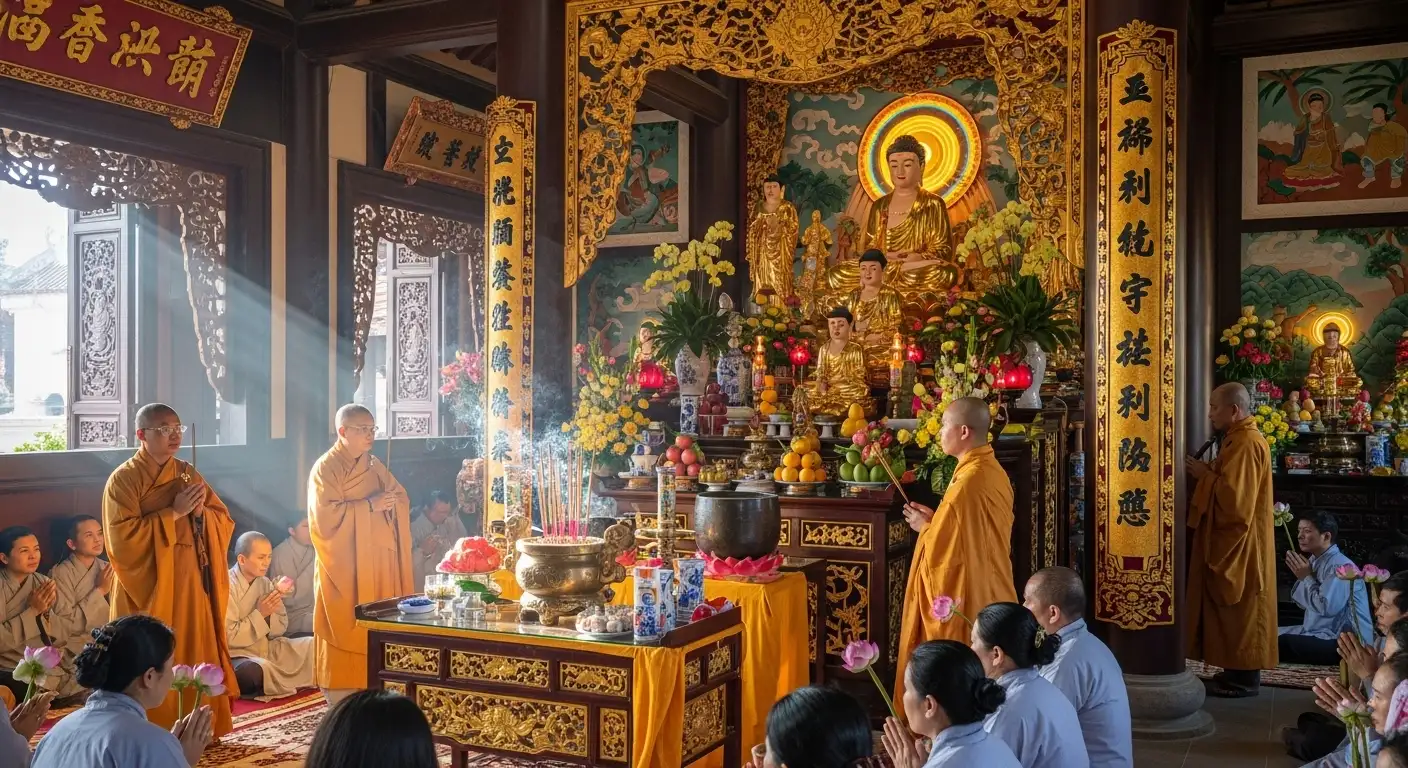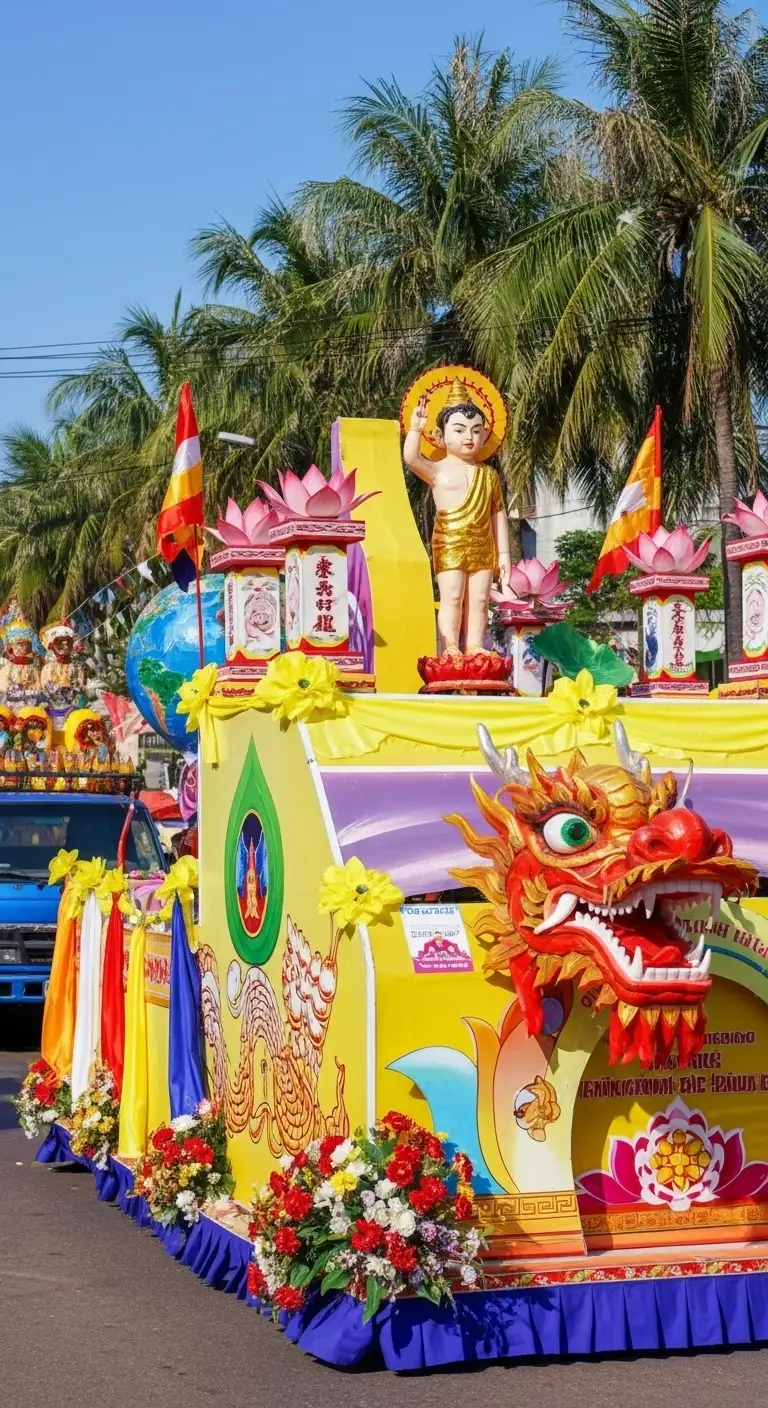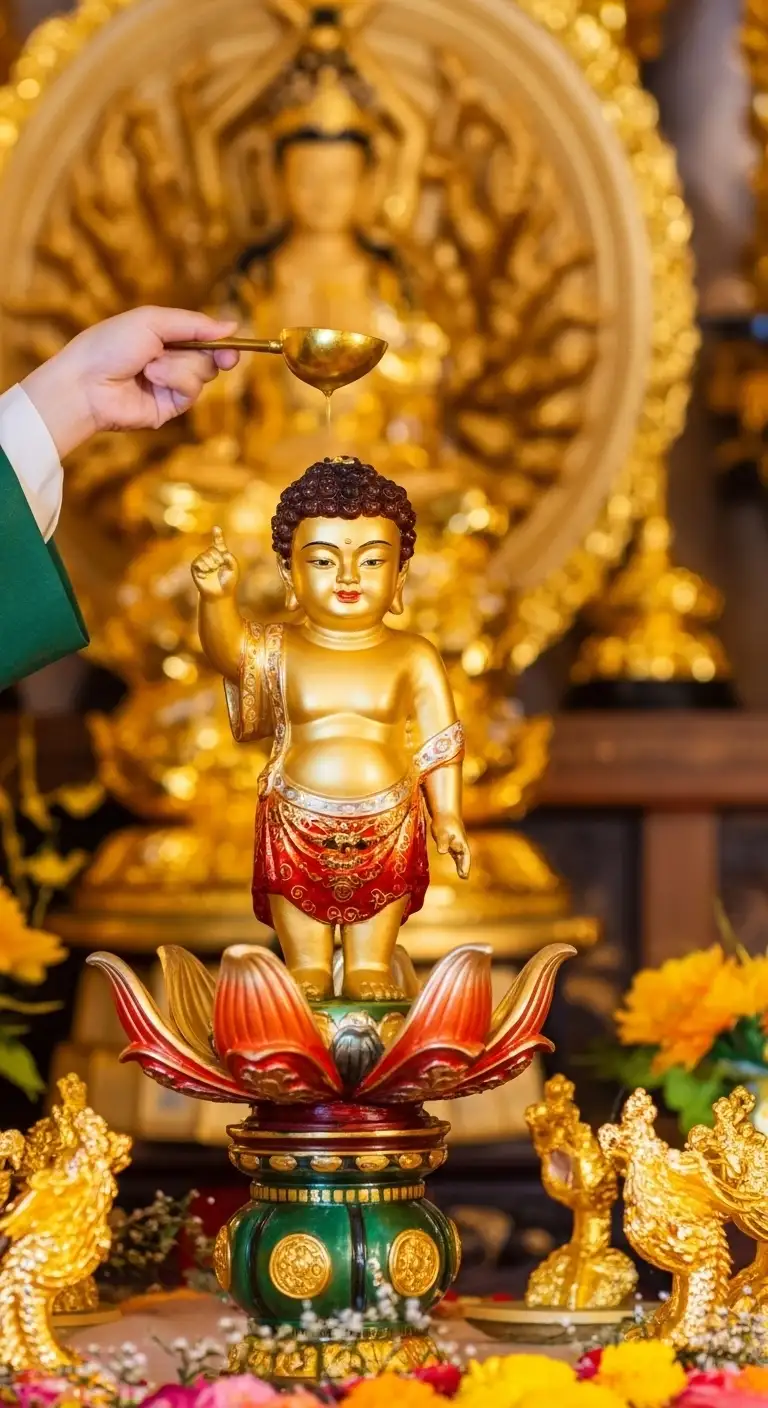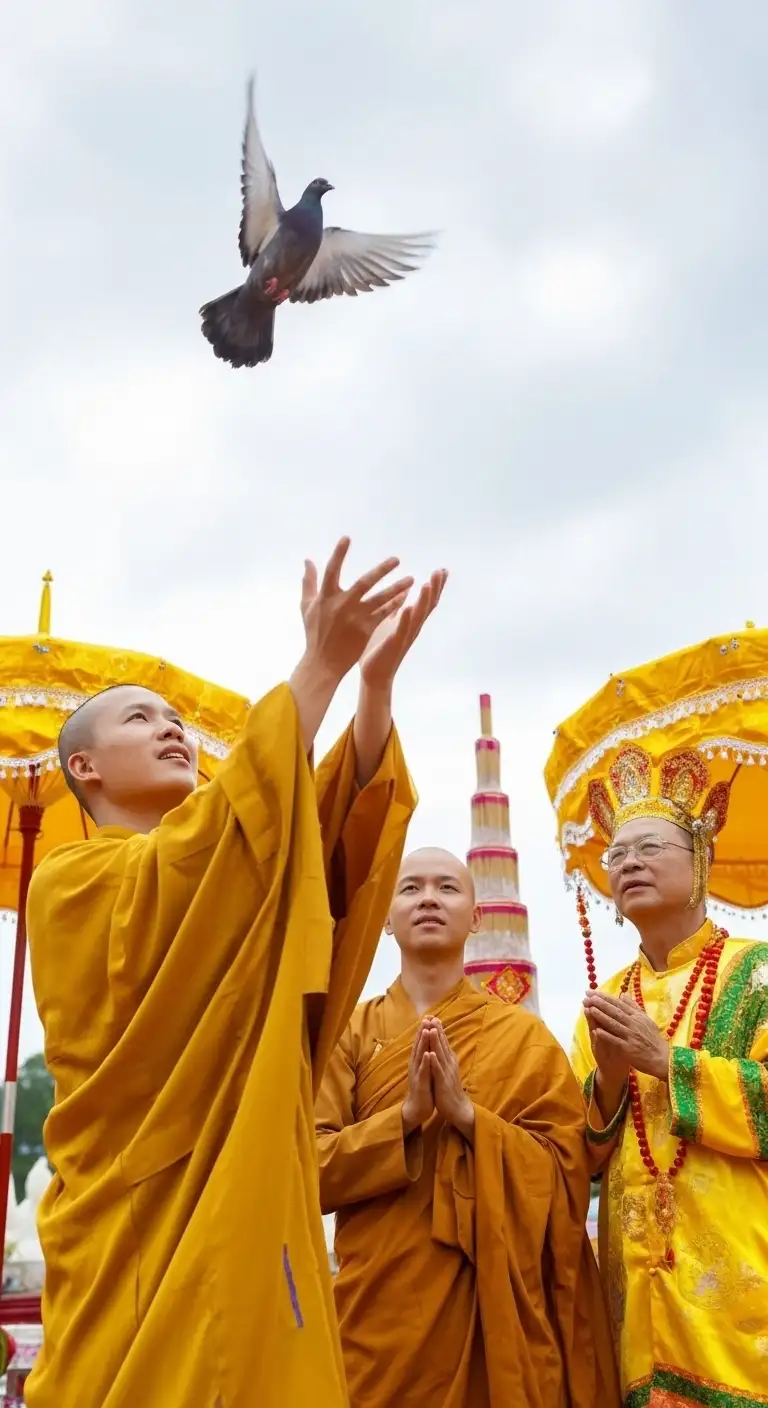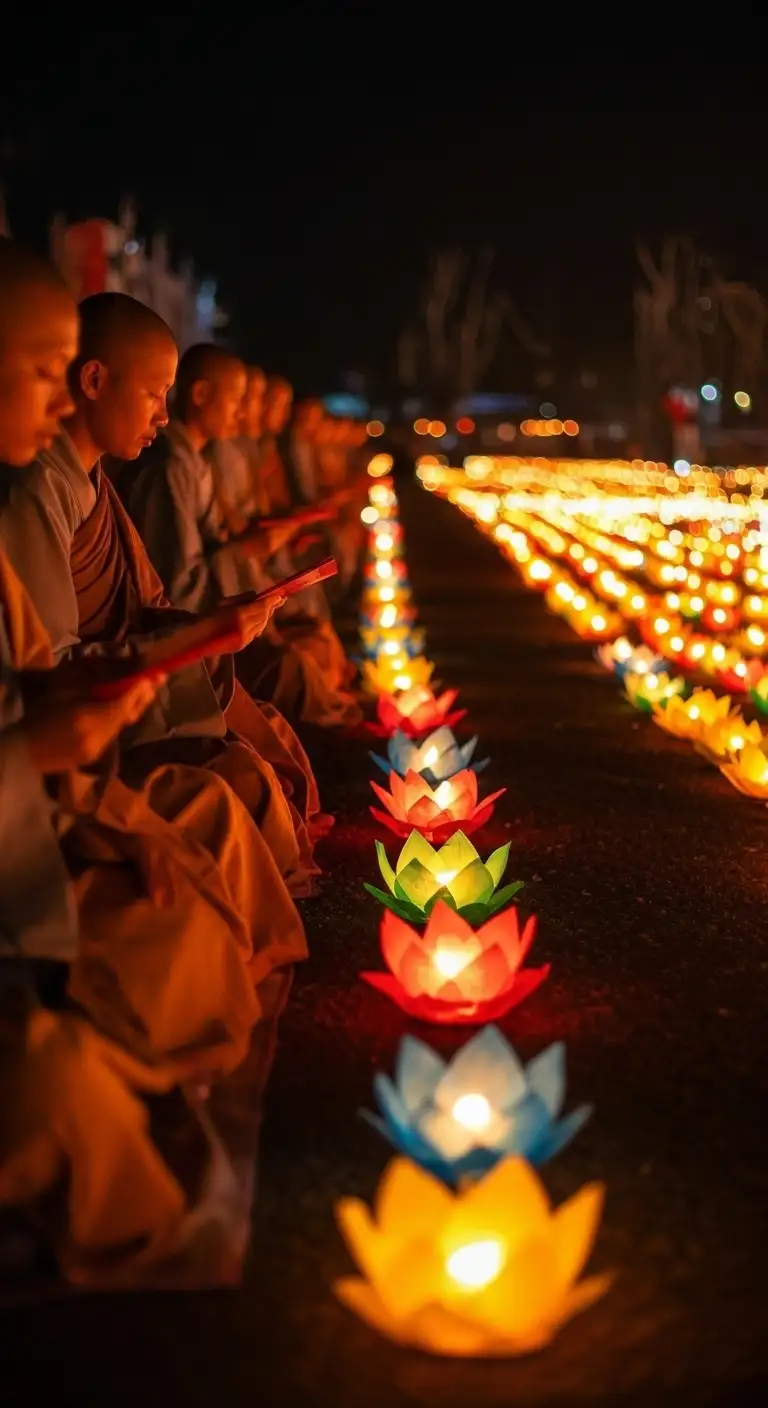Quick Facts
| Data Field (Title) | Content | Icon/Note |
|---|---|---|
| Vietnamese Name | Lễ Phật Đản (or simply Phật Đản) | A solemn but joyful observance. |
| International Name | Vesak Day or Buddha's Birthday | Recognized globally by the United Nations. |
| Date | 15th day of the 4th Lunar Month | Typically falls in late April or May of the Gregorian calendar. |
| Significance | Commemorates the Birth, Enlightenment, and Death (Parinirvana) of Siddhartha Gautama (The Buddha). | A triple celebration of his life. |
| Core Values | Compassion, charity, spiritual reflection, and mindfulness. |
I. Overview: A Day of Spiritual Significance
Lễ Phật Đản, known internationally as Vesak Day, is the most sacred annual event for Buddhists in Vietnam. It is a day dedicated to honoring the life of the Buddha and reflecting on his teachings of peace and compassion.
The celebration is not merely a holiday but a profound religious and cultural event observed with great devotion across the country. Temples and pagodas, from bustling Ho Chi Minh City to the ancient capital of Huế, become centers of vibrant activity, drawing millions of devotees and curious visitors.
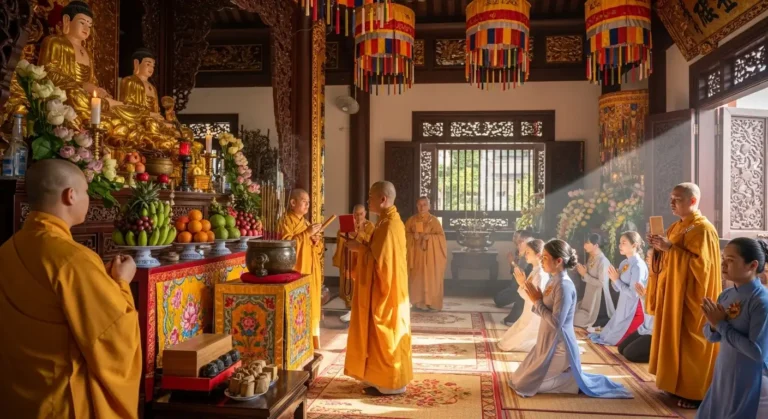
II. Key Rituals and Traditions
The activities on Lễ Phật Đản are rooted in ancient Buddhist practices, focusing on purification and giving:
Bathing the Buddha (Lễ Tắm Phật): This is the most iconic ritual. Attendees pour ladles of scented water over a small statue of the infant Buddha. This act is symbolic of purifying one’s own mind and actions, and praying for a clean, peaceful year.
Pagoda Visits and Offerings: Buddhists visit their local pagodas (Chùa) to pray, chant sutras, and make offerings of fresh flowers, fruits, and incense. Temples are elaborately decorated with colorful flags, flowers, and banners.
Lantern Processions (Rước Đèn): In many areas, especially in cities like Huế and Ho Chi Minh City, elaborate parades and ceremonies involve releasing illuminated lotus lanterns (hoa đăng) onto rivers. These lanterns symbolize light, enlightenment, and bringing peace to the world.
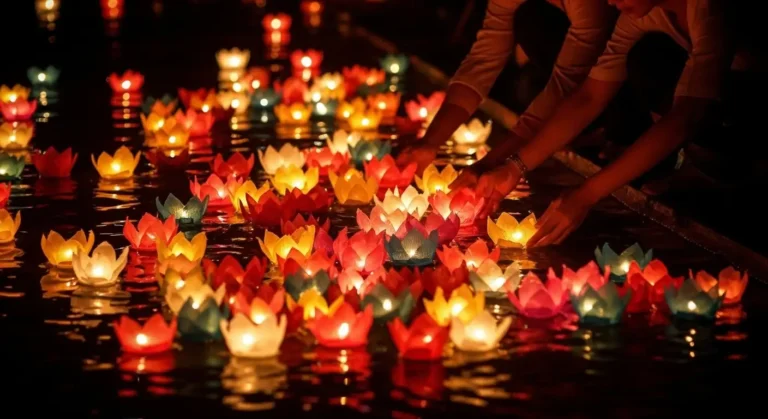
III. Community and Charity
Vesak Day is a time for compassionate action and community support:
Vegetarianism (Ăn Chay): To adhere to the Buddhist principle of non-violence (Ahimsa), many Vietnamese families observe vegetarianism for the entire day or even several days leading up to the festival. Pagodas often host free vegetarian feasts for the public.
Charity and Volunteering: Devotees engage in công quả (charitable work), visiting the elderly, orphans, and less fortunate to offer gifts, money, and free meals.
Releasing Captive Animals (Phóng Sinh): As an act of mercy and showing respect for all life, caged birds or fish are often released back into nature.
Travel Tip: Lễ Phật Đản offers travelers a unique opportunity to witness the spiritual depth of Vietnamese culture. While festivities are joyful, visitors are advised to dress respectfully (covering shoulders and knees) when entering pagodas.
